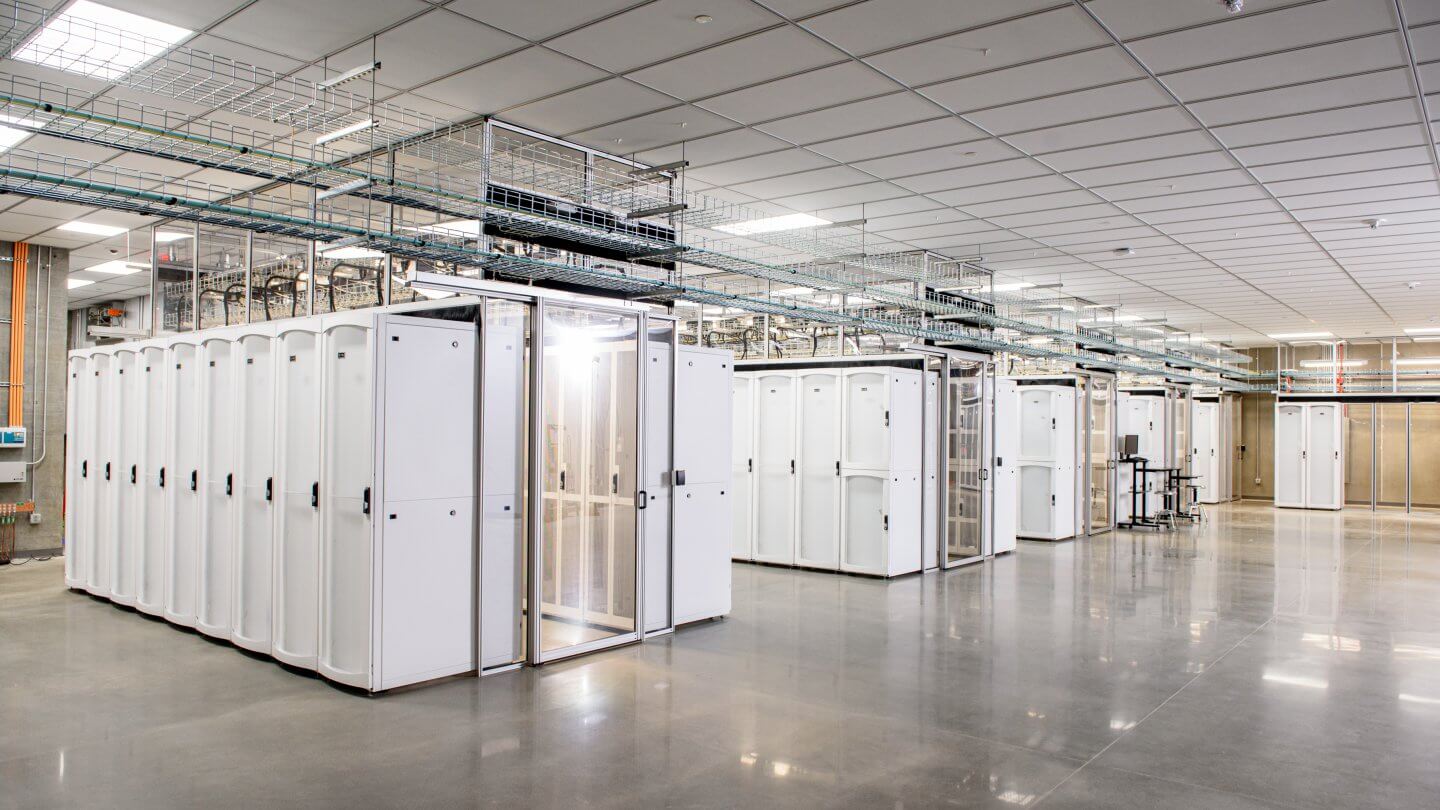The Strategic and Local Case for Colocation with DC BLOX in 2021
A global pandemic upending the status quo, the increasing demand for digitization across industries, coupled with the general tightening of purse strings that every organization has experienced over the last 12 to 18 months means many are reassessing their overall IT strategy. Considerations will have particular reference to the balance needed between future capabilities in terms of both scale and agility, and with the overheads and sometimes increasing uncertainties of existing on-premises facilities.
For some, the answer lies in the cloud, but the magical buzz phrase of “cloud-first” is undoubtedly not the catchall answer to every IT issue. There are many reasons why this is the case, some of which we will address here; however, anyone who has figured out the cost of mass data retrieval from a major cloud provider will know of at least one very good reason not to sign up immediately with GC, AWS or similar!
Legacy value
Legacy applications are often poorly portrayed in the technology press, usually when influenced by the latest marketing collateral from the newest, shiniest replacement device or software instance. There are sound reasons why many businesses run applications for 10 or 20 years: upgrades and new features are cheap to create, reliability is good (enough), and the business case for replacement simply doesn’t add up in terms of development/deployment time, staff retraining costs, cybersecurity reassessment, and so on.
That might fly in the face of what bright-eyed young developers just starting out in the business might believe, but the strategic view that comes from long experience in a sector will rightly favor a more gradual approach to change. That’s not to say that a legacy situation is ideal, and it’s here that colocation offers an alternative path.
The case for colocation
Colocation provides facilities that optimize all systems’ capabilities, with an ability to physically scale, lower running costs in terms of power and cooling, and provide a greater degree of choice in connectivity. When applied to older apps and services, business-critical systems get an extended life expectancy and better reliability, plus hands-on if required from technical staff.
In the last 12 to 18 months, many businesses in the Southeastern US found using the facilities offered by the DC BLOX data centers was a lifesaver: with staff unable to travel (or if it was unwise for them to do so), highly-skilled and briefed technicians undertook required maintenance and oversight of core systems. Business continuity was therefore preserved in tough circumstances.
Outside of recent events that have affected everyone, colo has its advocates where extremely specific hardware needs an ideal environment in which to run. There are those edge-cases at the very forefront of hardware development, of course — organizations spinning up racks of GPUs for machine learning computation, or undertaking research using HPC methods.
Perhaps less esoteric but more common — and arguably more important — are where the existing on-premises facilities of companies and organizations may not be ideal for hardware that has specific needs for connectivity, latency metrics, cooling, or power draw. Facilities from DC BLOX can be provided on the scale of a single rack right up to entire floors of centers with the very latest in DC design. For some organizations, colo is an ideal place to provision specialist production hardware too (for example, privacy-focused SGX or 2nd-gen Epyc-based applications); applications that need specific network and physical security, for example.
And like legacy software, many businesses rely on legacy hardware, and relocating this to dedicated facilities creates better environments for peak performance. Faster connectivity, broad carrier options, hybrid cloud, on-site optimization, local failover, and power management — every use-case is different, but the options are there when needed.
The DC BLOX data centers represent cloud-like flexibility, the ability to scale systems, and overall reliability that is often unavailable on-premises. In some cases, a data center’s physical and network security systems are a necessary part of compliance to specific governance or data protection regulations: handling sensitive, confidential data is, today, a make-or-break issue for many companies. Here DC BLOX more than ticks those compliance boxes.
Conclusion
The strategic decisions taken in other parts of an organization can have significant ramifications for an IT Department, especially given budgetary constraints on OPEX or CAPEX, plus the inherent limits on existing facilities and systems’ capability. DC BLOX has data centers close to where organizations are based, offering numerous colocation options for any or all compute, storage, and network. Plus, the facilities provide better connectivity, with faster infrastructure, reliability, and hands-on maintenance.
To discuss how your business might realign its IT footprint according to ongoing and future needs, talk to DC BLOX about the available options in its tier III facilities in the region.









